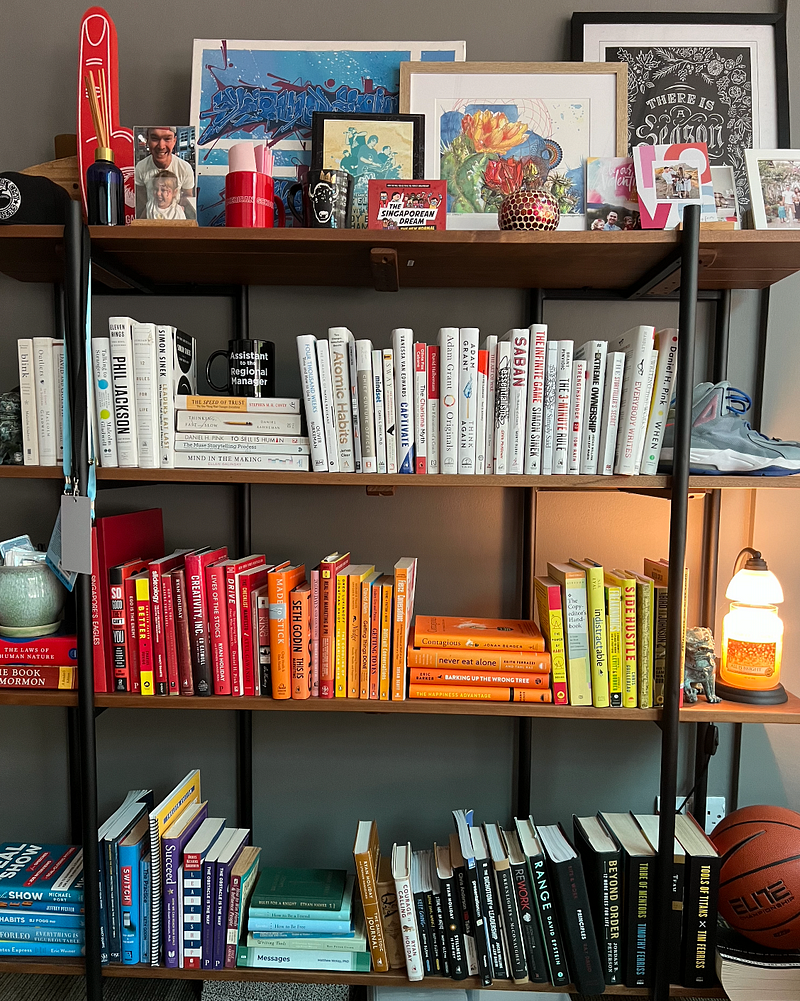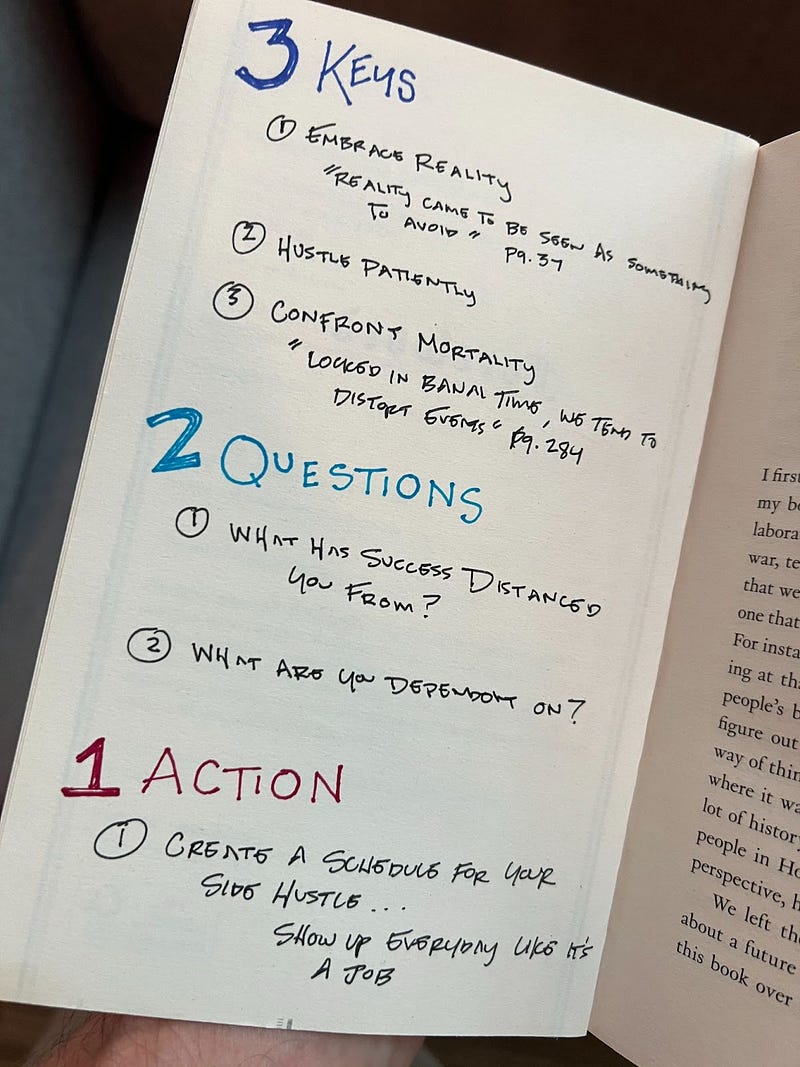Effective Strategies for Retaining Key Insights from Non-Fiction
Written on
Chapter 1: The Challenge of Remembering Non-Fiction
In my office, there's a bookshelf that tells a story about my reading preferences.

Photo by Kyle Aldous
It's immediately evident that I gravitate towards non-fiction and self-help literature rather than sci-fi or fantasy. While I appreciate those genres, nothing excites me quite like a new book from Adam Grant, compared to the latest installment of Game of Thrones.
If you share my enthusiasm for these genres, you might have encountered a familiar dilemma. You read an intriguing study and think, "This is fantastic; I need to remember this!" Then, you stumble upon a narrative that resonates with your own experiences and make a mental note to revisit it later. By the time you finish the book and are enthusiastically discussing it with a friend, you find yourself struggling to recall specific details, thinking, "There was this part where the author mentions... um, let me find it."
As fellow non-fiction enthusiasts, we often ponder the same enduring question: How can I retain everything I've read?
I've experimented with numerous methods. Perhaps you’ve heard of Ryan Holiday's notecard system—it's a great concept, but it can feel a bit daunting. Jim Kwik’s memorization technique didn’t resonate with me. Then there’s Jordan Peterson's advice to avoid highlighting and simply read—an opinion I don't share. Jay Shetty’s approach of focusing on the three P’s (Person, Principle, Practical application) is appealing, particularly the emphasis on practical use.
Through these experiences, I’ve reached a significant conclusion: We might be asking the wrong question.
The objective of reading isn’t to memorize every single detail.
I engage with these books to implement changes in my life.
I seek improvement.
I aspire to grow.
What I discovered across various systems and YouTube videos on this topic is a common fixation on the idea of remembering everything.
The allure of “everything” is strong.
We crave to remember it all, believing it allows us to achieve anything.
However, my findings reveal that striving to remember or act on everything often leads to recalling or doing nothing at all.
It's essential to break free from this “everything” trap.
What I do now is apply a 3–2–1 framework to retain what truly matters.
I focus on three elements: KEYS, QUESTIONS, and ACTIONS.
If you come across a powerful quote, highlight it and jot down a key beside it. If a principle leaves you puzzled, note down a question in the margins. If you identify an action that could enhance your life, label it as “ACTION” on the page.
Upon completing the book, you'll have an array of keys, questions, and actions to sift through.
Now, I revisit the book to discern what resonates. Which notes stand out? What actions could yield the most substantial impact? Which questions inspired new thoughts and connections?
Inside the front cover, I write:
3 Keys
2 Questions
1 Action
I don’t need to memorize everything. Just think of the possibilities with these few key points.

Photo by Kyle Aldous
With a handful of these insights, you will grasp the essence of the book. You’ll feel confident discussing it with a friend, and it will be easier to recall because there's less to remember.
Questions encourage deeper thinking, pushing you to go beyond surface-level understanding. The content becomes more engaging as you explore new dimensions of interaction.
By focusing on a single action, you're more likely to implement it. If a book inspires just one meaningful change, it has proven to be immensely valuable. When someone asks about the impact of a book, you can confidently say, "I implemented X, and I'm already experiencing Y."
Not every book will yield actionable insights. If you finish a book without a clear action, that's perfectly acceptable! Don't force it. You likely still gained valuable keys and questions to reflect upon. However, since your energy is finite, don’t assume that every book will provide an actionable takeaway.
This reading formula for non-fiction has transformed my experience:
- Enhanced my ability to remember what I've read
- Increased the perceived value of the books I’ve engaged with
- Motivated me to act on the most impactful ideas
- Alleviated the guilt of feeling like I read something without gaining anything.
So, as you reach for your next Ryan Holiday book (which you should!), remember this: you don’t need to remember everything.
3 Keys.
2 Questions.
1 Action.
Enjoy!
Chapter 2: Practical Insights for Non-Fiction Reading
To delve deeper into effective memory retention techniques, check out these insightful YouTube videos.
The first video titled "A Simple System to Remember Everything You Read" provides a concise overview of practical strategies for improving memory retention.
The second video, "How to Remember Everything You Read," offers further techniques to enhance your reading experience and application of knowledge.